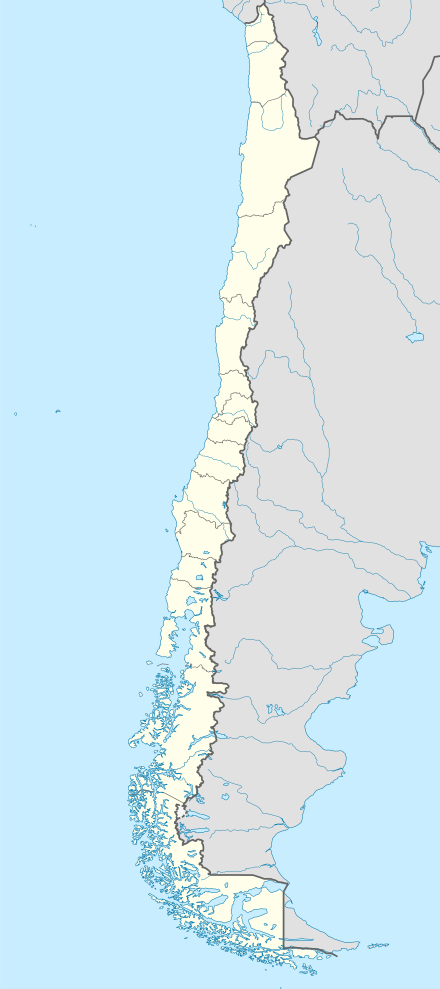Nancagua
| Nancagua | ||||
|---|---|---|---|---|
| City and Commune | ||||
|
Church of Nancagua | ||||
| ||||
| Coordinates: 34°40′S 71°13′W / 34.667°S 71.217°WCoordinates: 34°40′S 71°13′W / 34.667°S 71.217°W | ||||
| Country |
| |||
| Region |
| |||
| Province |
| |||
| Government[1] | ||||
| • Type | Municipality | |||
| Area[2] | ||||
| • Total | 111.3 km2 (43.0 sq mi) | |||
| Elevation | 194 m (636 ft) | |||
| Population (2012 Census)[2] | ||||
| • Total | 15,409 | |||
| • Density | 140/km2 (360/sq mi) | |||
| • Urban | 9,264 | |||
| • Rural | 6,370 | |||
| Sex[2] | ||||
| • Men | 7,959 | |||
| • Women | 7,675 | |||
| Time zone | UTC-4 (CLT [3]) | |||
| • Summer (DST) | UTC-3 (CLST [4]) | |||
| Area code(s) | (+56) 72 | |||
| Website | Municipality of Nancagua | |||
Nancagua (Spanish pronunciation: [naŋˈkaɣwa]) is a Chilean city and commune in Colchagua Province, O'Higgins Region.
Demographics
According to the 2002 census of the National Statistics Institute, Nancagua spans an area of 111.3 km2 (43 sq mi) and has 15,634 inhabitants (7,959 men and 7,675 women). Of these, 9,264 (59.3%) lived in urban areas and 6,370 (40.7%) in rural areas. The population grew by 8.5% (1,220 persons) between the 1992 and 2002 censuses.[2]
Administration
As a commune, Nancagua is a third-level administrative division of Chile administered by a municipal council, headed by an alcalde who is directly elected every four years.
Within the electoral divisions of Chile, Nancagua is represented in the Chamber of Deputies by Mr. Ramón Barros (UDI) and Mr. Juan Carlos Latorre (PDC) as part of the 35th electoral district, (together with Placilla, Chépica, Santa Cruz, Lolol, Pumanque, Palmilla, Peralillo, Navidad, Litueche, La Estrella, Pichilemu, Marchihue and Paredones). The commune is represented in the Senate by Andrés Chadwick Piñera (UDI) and Juan Pablo Letelier Morel (PS) as part of the 9th senatorial constituency (O'Higgins Region).
References
- ↑ "Municipality of Nancagua" (in Spanish). 13 December 2010. Archived from the original on 30 September 2011.
- 1 2 3 4 "National Statistics Institute" (in Spanish). Retrieved 3 December 2010.
- ↑ "Chile Time". WorldTimeZones.org. Archived from the original on 2007-09-11. Retrieved 2010-07-28.
- ↑ "Chile Summer Time". WorldTimeZones.org. Archived from the original on 2007-09-11. Retrieved 2010-07-28.
External links
| Wikimedia Commons has media related to Nancagua. |
- (in Spanish) Municipality of Nancagua


